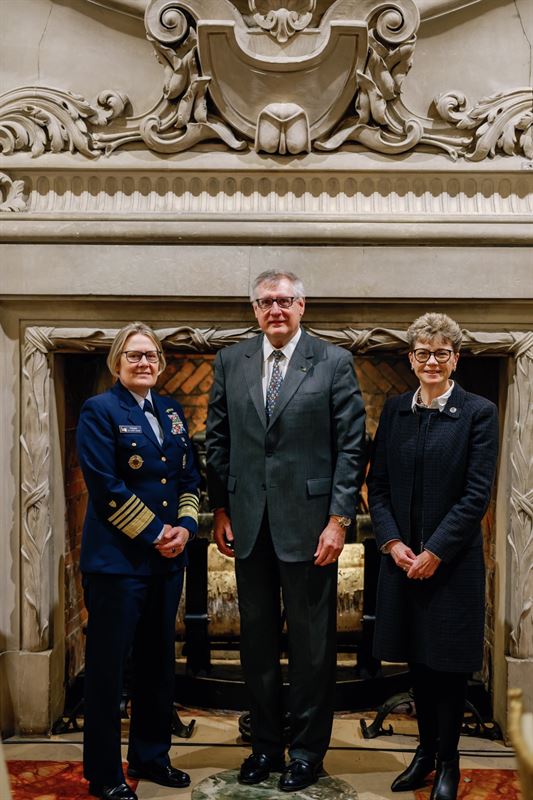[image] (NEW YORK) “Safety is more than just compliance. It is now synonymous with security, reliability, collective relationships and people. Safety is also becoming systems based rather than rooted in prescriptive

(NEW YORK) “Safety is more than just compliance. It is now synonymous with security, reliability, collective relationships and people.Safety is also becoming systems based rather than rooted in prescriptive rules or specific component procedures. Only by embracing a proactive, systems-oriented approach to safety, can the maritime industry navigate the path to a decarbonized future while ensuring the well-being of its seafarers and the protection of the marine environment.”
That was the message from Christopher J. Wiernicki, ABS Chairman and CEO, to members at the annual ABS Advisory Council Meeting,which included presentations from the Commandant of the U.S. Coast Guard (USCG) and the Administrator of the U.S. Maritime Administration (MARAD).
Council members also heard how ABS has continued to hold the number one position in global orderbook share and has grown the existing ABS-classed fleet to 298 million gross tons, with more than 11,500 assets. ABS continues to be a leading voice in the industry with trusted insights into a range of emerging technologies while recording industry-leading port state and fleet safety performance.
“Technology is advancing very quickly, and we are moving into an age where we need short-, mid- and long-term game plans. ABS is keeping one eye on today and one eye on tomorrow and making the right investments to support our safety mission and our clients,” said Wiernicki.
Admiral Linda Fagan, Commandant, U.S. Coast Guard, said: “Safety at sea requires a unified effort from all stakeholders. Leadership and partnership, particularly with the Coast Guard, ABS and MARAD, are serving us well in supporting U.S. maritime governance, safety and security.”
Maritime Administrator Ann Phillips, Rear Admiral U.S. Navy (Ret.), said: “With the increased pace of technological change and the challenges related to building our maritime workforce - collaboration is critical. MARAD continues our advocacy for a modern U.S. maritime transportation network with a particular focus on recruiting, training and retaining mariners - along with key investments for our ports, waterways and infrastructure. We thank ABS and the Coast Guard for their continued leadership as we work together to enhance the safety, security and the overall health of the U.S. maritime industry and maritime commerce.”
The comprehensive discussion included insights into next-generation vessel designs, clean energy initiatives, the role of retrofitted carbon capture and energy efficiency technologies, cybersecurity and the availability and scalability of fuels.
“We believe carbon capture, clean hydrogen, electrification, digital technologies such as machine learning and renewable power sources like nuclear are going to be key solutions impacting maritime going forward,” said Wiernicki.
Council Members also were given an overview of digital solutions supporting compliance in the rapidly changing regulatory landscape and how ABS is using an efficient and streamlined class process that leverages condition-based data, reduces downtime and minimizes time on board. Additionally, the discussion focused on industry challenges and opportunities due to an increasing focus on technical investments, business automation, cybersecurity and risk management.
Photo Caption (L to R): Admiral Linda Fagan, Commandant, U.S. Coast Guard; Christopher J. Wiernicki, ABS Chairman and CEO; Rear Admiral Ann Phillips, U.S. Navy (Ret.), Administrator of the U.S. Maritime Administrator
Tags:
Content Original Link:
" target="_blank">



































